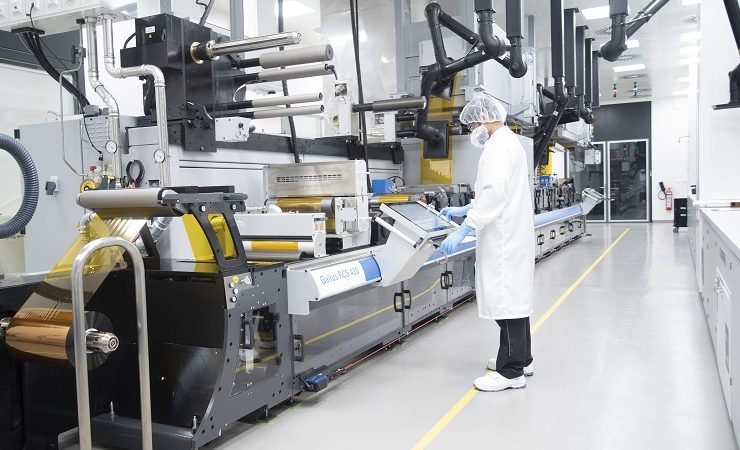Heidelberg has set up a dedicated business unit for the development of printed and organic electronics investing €5 million in a complete production line for printed sensors.
The company has also started production at its Wiesloch-Walldorf site, drawing on the production capabilities of its flexo department, Gallus. Sensors developed at InnovationLab (iL) in Heidelberg for use in dental technology are set to be printed first.
These printed sensors make it possible to digitally record the distribution of masticatory pressure when the upper and lower jaws come together. 3D visualization on a tablet and data archiving enable malocclusions (misalignment between the teeth of the two dental arches when they approach each other as the jaws close) to be identified and subsequently corrected. Looking further ahead, Heidelberg will use the printing technology at its campus to produce sensors for other digital applications – in particular in healthcare and logistics, and also in the retail and automotive sectors.
‘Embarking on the development and industrial production of printed and organic electronics represents a milestone for Heidelberg and for Germany as an industrial player. As we see it, our involvement in this production of high-tech sensors opens up the potential for growth in the two- to three-digit million euro range,’ said Heidelberg CEO Rainer Hundsdörfer.
The future industrial printing of organic electronics and the associated software/hardware development represent a first for the German mechanical engineering company and will take digitisation forward. The new sensor printing technology makes Germany’s high-tech industry a world leader in this area of development. In operational terms, its introduction offers Heidelberg a whole host of development opportunities, printing sensors mile after mile on an industrial scale in a cleanroom environment. The technology and the sheer scale of output in this form are currently unrivalled anywhere in the world.


